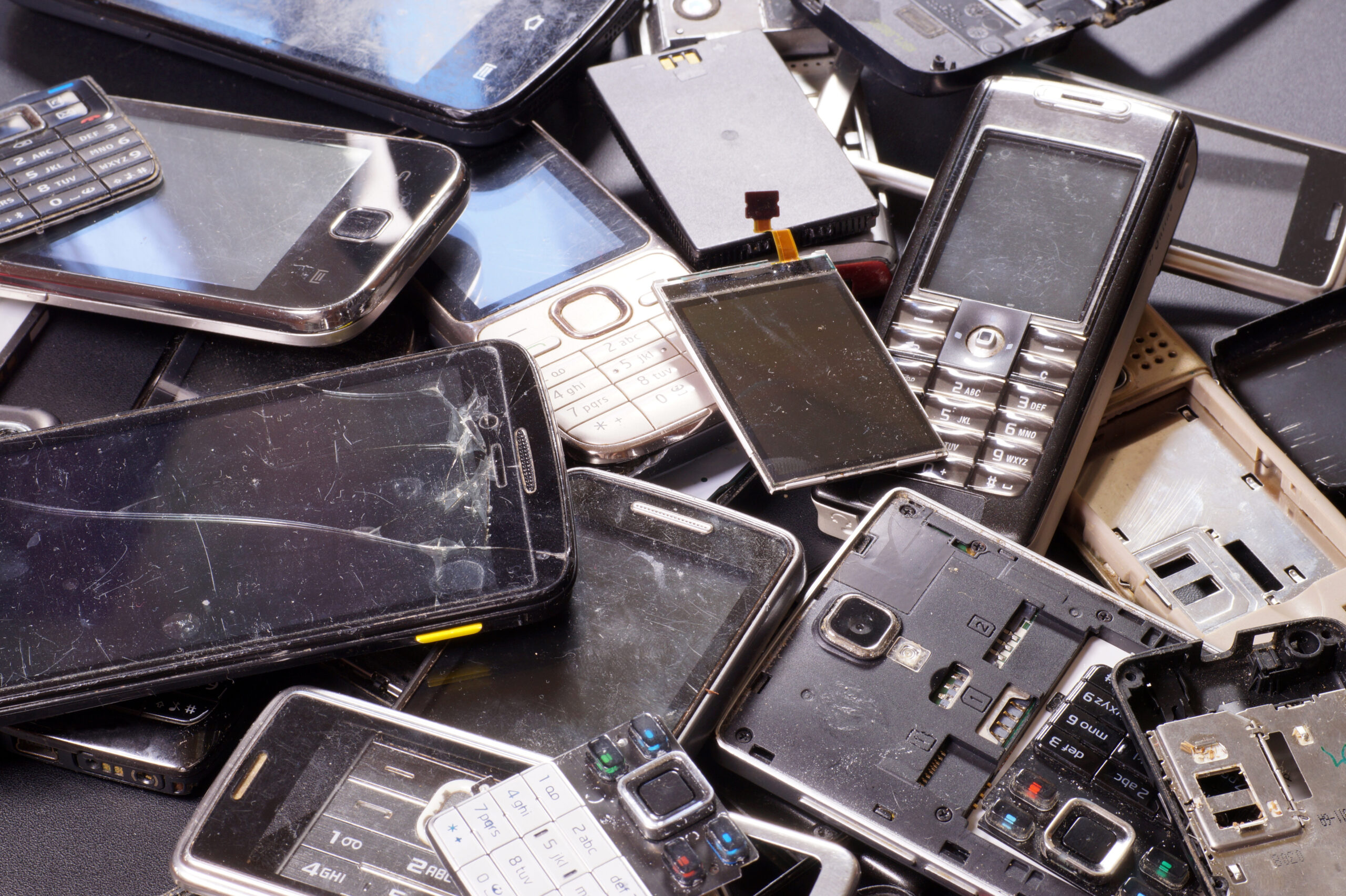We often spend a lot of time looking through our phones for comfort or connection to others. But just beyond the screen, there is plenty of green around us—not everywhere, but in many of our surroundings. These same devices we use to manage our lives and communicate with those who are out of our reach for several hours a day demand a price from us: our environment. That very same greenery we cherish in our cities, suburbs, and in our favorite outdoor pastimes can vanish for all the marvels we’ve achieved and use regularly. But it doesn’t have to be this way. Just like we found solutionsfor many challenges in our history—like the energy production paradigm shift amid realizations about carbon emissions—the spirit of man will find one for the problem of mobile devices, too. First, we need to recognize the problem.

Too much e-waste
What do most people do with their old electronics when they’re kaput? Most people dispose of them in the trash or at some sort of authorized depot. At times, some resort to the old stuff-in-away-in-a-drawer method. Regardless, none of these are truly working to the degree that’s required for real change.
As it stands, the UN estimates that about 50 million tons of e-waste is produced by the entire world, “weighing more than all of the commercial airliners ever made.” But only 20 percent of it is formally recycled. What’s even more alarming is how much value there is in this pile of electronic trash. Consider another UN factoid: the value of the e-waste that is produced globally each year is worth at least $62 billion, which turns out to be greater than the GDP of most countries, and there is more gold in a ton of e-waste than a ton of iron ore. As they say, one man’s garbage is another man’s treasure, so why isn’t the world harnessing the trade value of this so-called “trash?”
Trash worth its weight in gold
While 20 percent of the e-waste is formally recycled, there is still another share that is informally recycled, which means it’s handled by non-professionals who are hunting for valuable resources in e-waste piles. Exposure to the materials in e-waste, such as lead, mercury, cadmium and arsenic, without proper protection equipment can have long-standing negative health effects. Beyond the human effects, these materials leak into the neighboring environment and also impact the local ecology. This happens quite often in developing countries and towns, like a town in China called “Guiyu” or Nigeria. In many circumstances, locals sift through e-waste for valuable resources and usually suffer the consequences.

Rather than let the billions in value go to waste and continue causing environmental and human harm, government institutions and private businesses should cooperate to invest in developing more infrastructure and incentives for repurposing e-waste, especially mobile devices. In many instances, consumers improperly dispose of or hold onto their old mobile devices. But encouraging consumers to trade-in old devices and incentivizing them with discounts and tax cuts for companies offering them is one method to try and reshape the status quo. Either way, efforts to repurpose mobile devices need to be ramped up.
Assembling the puzzle pieces for a complete solution
To achieve this massive objective, institutions both private and public will need a one-stop-shop system to help them manage the mobile device lifecycle, from assembly to disposal to recycling. mce systems offers telecommunications companies and their affiliate companies a full-suite SaaS platform to manage all the parts of the mobile device lifecycle, including the repurposing portion after a device’s use has ended. At the end of the day, our mobile devices make our lives convenient, but they don’t need to interfere with the greenery around us. Let’s work to make sure the two coexist.

About the author
Liran is the CCO of MCE Systems, an omnichannel device lifecycle and automation solutions boutique. With a B.Sc. in computer science and physics from Israel’s Ben Gurion University and over 15 years of experience in mobile communications and dealing with global carriers, Liran became an international pre-sale guru at Emblaze Mobile and later founded mobile solutions software company eRocki, followed by mce Systems. On the side, Liran is an avid yogi, having studied VijñānaYoga for three years, and is a dedicated husband and father to three adorable kids.
About MCE Systems:
MCE Systems is the pioneer in mobile device lifecycle management, having created more than $2.5B of shareholder value for operators and their partners since 2005. MCE’s industry-leading solutions simplify operations, increase revenues, and decrease inefficiencies. Specific solutions range from device diagnostics and care to trade-in management with a price guarantee to handling device returns. All are omnichannel-ready with world-class virtualization and provide fully integrated data management to anticipate customer needs around device-related customers issues (e.g., device health, upgrade timing). Over its more than 15 years of experience, MCE Systems has become the trusted solution to Tier-1 operators and their partners. For more information, please visit:www.mce.systems.
Follow us on LinkedIn at https://www.linkedin.com/company/mce-systems
Visit our Facebook page at https://www.facebook.com/mceSystems
Media contact:
Email:[email protected]
Company contact:
Email:[email protected]




